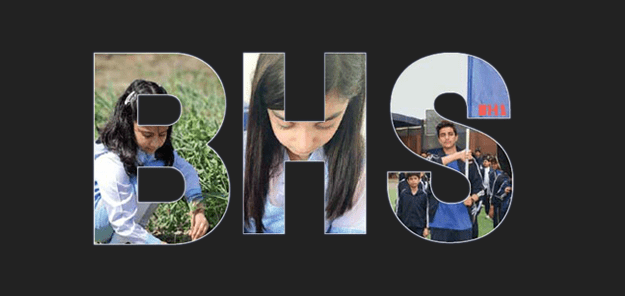Table of Contents
The 21st century has ushered in a new era of unprecedented connectivity, and in this landscape, the promotion of global citizenship in education has become not just a desirable goal but a transformative force. This exploration aims to delve deeper into the multifaceted aspects of this imperative, examining how educational institutions, particularly those within the BHS schools, are adapting to this transformative era. Through enriched perspectives, technological integration, and a focus on diversity, inclusivity, and tolerance, these institutions are shaping students into global citizens prepared for a world where borders are increasingly blurred.
Enriched Perspectives: Global Exposure in BHS Schools
Within the dynamic environment of BHS schools, there’s a recognition that education goes beyond the traditional confines of textbooks and classrooms. Students and staff bring a wealth of enriched perspectives to the educational landscape, emphasizing the significance of global exposure. The focus extends beyond theoretical learning, incorporating experiential elements that transcend cultural and national limitations. This exposure becomes a cornerstone for understanding the imperative need for skill sets that foster global citizenship.
Defining Global Citizenship in Education: Insights from April Rinne
To understand the essence of global citizenship, it’s valuable to draw insights from thinkers like April Rinne, a notable contributor to the World Economic Forum. Her definition of global citizenship as a “shared human experience” underscores the importance of shared values and responsibilities. This shared sense of accountability gains prominence in the face of global challenges, such as climate change, as exemplified by passionate activists like Greta Thunberg. It sets the stage for an exploration of how education can prepare individuals to contribute meaningfully to this shared experience.
Educational Evolution: Leveraging Technology for Global Preparedness
As technology continues to redefine the way we connect and communicate, educators find themselves at the forefront of leveraging these tools to prepare students for a global way of life. This section delves into the paradigm shift in educational approaches, reflecting the demands of the interconnected digital age. The integration of technology into the educational framework becomes a key strategy to equip students with the skills needed to thrive in a world where geographical boundaries are increasingly becoming inconsequential.
Foundations of Global Citizenship: Diversity, Inclusivity, and Tolerance
Diversity, inclusivity, and tolerance emerge as the foundational principles of global citizenship. These are not mere theoretical concepts but require active integration into the educational fabric. Fostering a genuine respect for differences becomes paramount, preparing students for a diverse and interconnected world. The focus is on cultivating a mindset that values and appreciates diversity rather than recoiling from it. This section explores how educational institutions are incorporating these principles into their curricula and ethos.
Empowering Tolerance: A Cornerstone for Digital Interconnectedness
Navigating the digital landscape requires a profound level of tolerance. This section elucidates the critical role of tolerance in this context, highlighting real-world examples and interactive information sessions as effective tools for fostering cognitive discourse and diligent reflection. The essay emphasizes the need for cultivating a culture of peaceful co-existence on digital platforms, aligning with the overarching goal of promoting global citizenship. Empowering students with the skills to navigate diverse online platforms becomes an essential endeavor in the interconnected digital age.
Real-world Integration: Cognitive Discourse through Case Studies
A practical turn is taken as the exploration moves into the integration of real-world examples through case studies. Traditionally associated with higher education, this approach becomes imperative at the school level. Case studies are presented as a means to pull students out of social bubbles, enhance comprehension, and hone critical thinking and creative writing skills. The multifaceted benefits of this approach contribute to a more comprehensive understanding of global issues.
Interactive Insights: Broadening Horizons with International Specialists
This section underscores the impact of interactive information sessions facilitated by international specialists. The focus is on the need for quality over quantity in these sessions, ensuring that students actively engage with the material. These sessions provide a firsthand glimpse into the global landscape, sparking curiosity and broadening students’ horizons. The interaction with professionals from diverse fields serves as an inspiration, encouraging students to explore beyond the confines of their immediate environment.
Conclusion: Paving the Way for a Connected and Harmonious World
In conclusion, the transformative power of promoting Global Citizenship in Education becomes evident. The rigorous educational initiatives pave the way for the cultivation of socially vigilant and emotionally sensitive individuals. These individuals not only retain a strong sense of personal identity but also harbor deep respect for those from differing religions, cultures, and countries.
This transformative approach transcends the limitations of a single group, sect, or religion, fostering a shared value system that serves as a beacon for a more interconnected and harmonious world. This exploration goes beyond the theoretical framework, providing a nuanced understanding of how educational institutions are actively adapting to the demands of the 21st century. As they embrace technological advancements, real-world integration, and interactive insights, these institutions are not just preparing students for academic success but for active participation in a global community where the ability to navigate complexities and appreciate diversity is paramount


